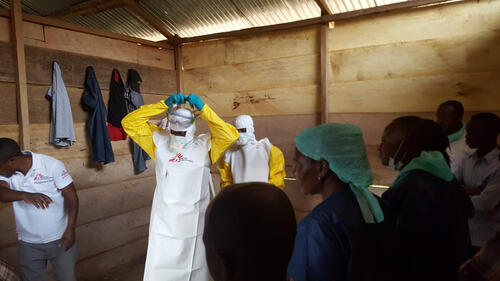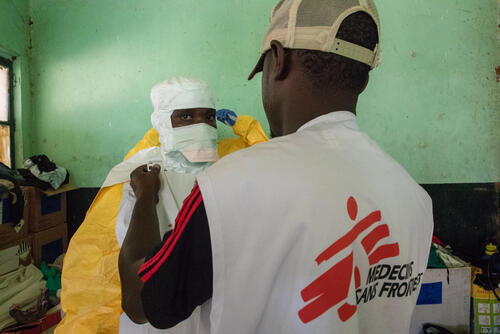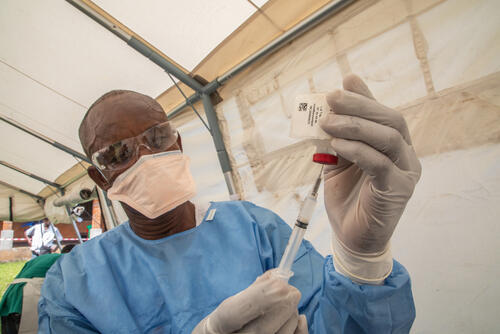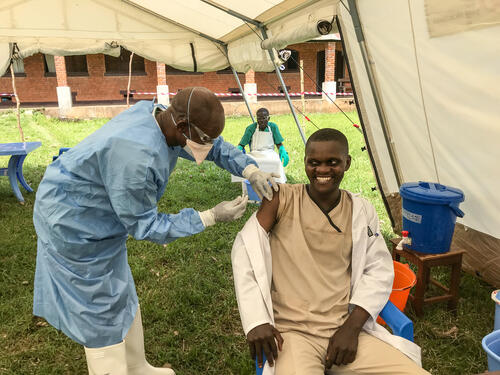The tenth Ebola outbreak in the Democratic Republic of Congo (DRC) was declared on 1 August in North Kivu province, in the northeastern part of the country. So far, 74 cases and 34 deaths have already been reported by the health authorities.
MSF teams are intervening within the framework of the Ministry of Health’s response plan. During the first week of intervention, our teams have set up a 30-bed treatment unit in the town of Mangina, the epicentre of the outbreak. Another isolation unit has been established in Beni, a city of 400,000 people, located 45 minutes’ drive away from Mangina. MSF is also providing training on infection prevention and control to the health centres of the surrounding area; one of the key elements of the response is making sure that the rest of the health system remains functional, in order to preserve continuity of care for patients with other illnessesExternal Situation Report, WHO Regional Office for Africa.
“There are several challenges we have to face”, says Gwenola Seroux, Emergency Cell Manager for MSF. “The first one, of course, is to limit the spread of the epidemic and this requires protection of health workers and healthcare facilities from the virus. Vaccination, which the Ministry of Health is beginning to provide, will be another critical part of this effort.”
Other MSF projects in the region have also raised the level of alert and put in place procedures to safeguard existing activities from the risk of contamination; these include MSF programmes providing care for paediatric and malnourished patients and victims of sexual violence in Lubero and Bambu-Kiribizi, as well as at the hospital in Rutshuru
The first challenge we face is to limit the spread of the epidemic and this requires protection of health workers and healthcare facilities from the virus.”Gwenola Seroux, Emergency Cell Manager for MSF
Around 800 contacts of Ebola patients have already been identified by the health authorities and are being followed up to monitor any early symptoms of the disease.
More challenges will follow from the context of this new outbreak: the outbreak region has long been characterised by ongoing violence.
“It is the first time we face an Ebola outbreak response in an area of conflict”, says Ms Seroux. “This is going to make the response all the more difficult, especially in terms of limiting the spreading of the disease in areas difficult to access. Our ability to move on the ground is going to be limited.”
The area is also very close to the border with Uganda and the authorities in Kampala have called for their citizens to be on high alert. MSF teams on the Ugandan side of the border have been equally reactive and are collaborating with the national authorities, in case an intervention may be called for there as well.
While the origin of the outbreak might be dated back to May, this new outbreak appears to not be related to the previous outbreak which affected the Equateur region and was declared over in July.






